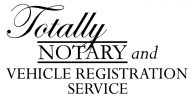A reverse mortgage is a loan against the equity an elder has built up in their home. The loan is “reversed” because instead of making payments to the lender as in a traditional mortgage, the bank advances sums to the elder against the future sale of the property. These loans allow homeowners age 62 and older to convert a portion of their home equity into loan proceeds that can be used to supplement their retirement spending.
The advances can take the form of a lump sum, a credit line, or monthly cash advances or a combination of all three.
The amount of money the elder may borrow depends on:
- their age
- current interest rate
- amount of fees charged
- and the Maximum Claim Amount (MCA), which is currently $679,650 (eff. 1/1/18) or the appraised value of the home, whichever is less.
The Reverse Mortgage becomes due when:
- the elder dies*
- permanently leaves the home
- fails to maintain the property
- fails to pay their property taxes
- fails to pay their homeowner’s insurance.
*If the surviving widow or widower is not on the deed, they may lose the home if they are unable to repay the debt when the Deed holder passes or leaves the home.
The vast majority of reverse mortgages are federally-insured Home Equity Conversion Mortgages (HECMs) that are backed by the Federal Housing Administration.
To ensure that the elder is informed before making the decision to take out a reverse mortgage, one of requirements of the reverse mortgage is that the homeowner receives counseling from a HUD approved counseling agency. The reverse mortgage counselors explain how reverse mortgages work, including payment options, costs, tax implications, benefits and drawbacks. The counseling appointment can be in person or over the phone.
While a reverse mortgage can be helpful and provide financial relief for some seniors, there is potential for elder financial abuse and exploitation.
Reverse mortgage abuse is perpetuated by financial abuse predators that seek to take advantage of elders by manipulating and misleading them into acting against their own best interests.
Often the financial abuse predators are brokers, insurance agents, tax planners, family members or caregivers.
Sometimes the financial abuse predator is selling a financial product, like an annuity, or home improvements which the elder is persuaded to pay for with a reverse mortgage.
Sometimes, it’s a family member or caregiver that is attempting to swindle the proceeds from the elder.
I once met with an elderly client for a reverse mortgage closing. When I arrived, his caregiver met me at the door and as I introduced myself, she prompted him as he entered the room to cooperate and not give me a hard time. Suspicious, I asked him if he knew why I was there. He responded that I was there to “check up on him”, as if he thought I was there from Social Services. When I asked him if he had applied for a reverse mortgage, he had no idea what I was talking about. Turns out, his caregiver had requested it on his behalf after receiving a post card advertisement and his reverse mortgage, had it been successfully closed, would have resulted in an initial $60,000 advance.
To the caregiver’s disappointment, I adjourned the closing. I promptly alerted the lender to the situation and I called the county’s Adult Protection Services to report the incident.
While elder abuse can take several forms: physical, psychological/emotional, neglect and financial, in Alameda County, more than 70% of reports of abuse are for alleged financial abuse.
©2018 Totally Notary All Rights Reserved


Leave A Comment